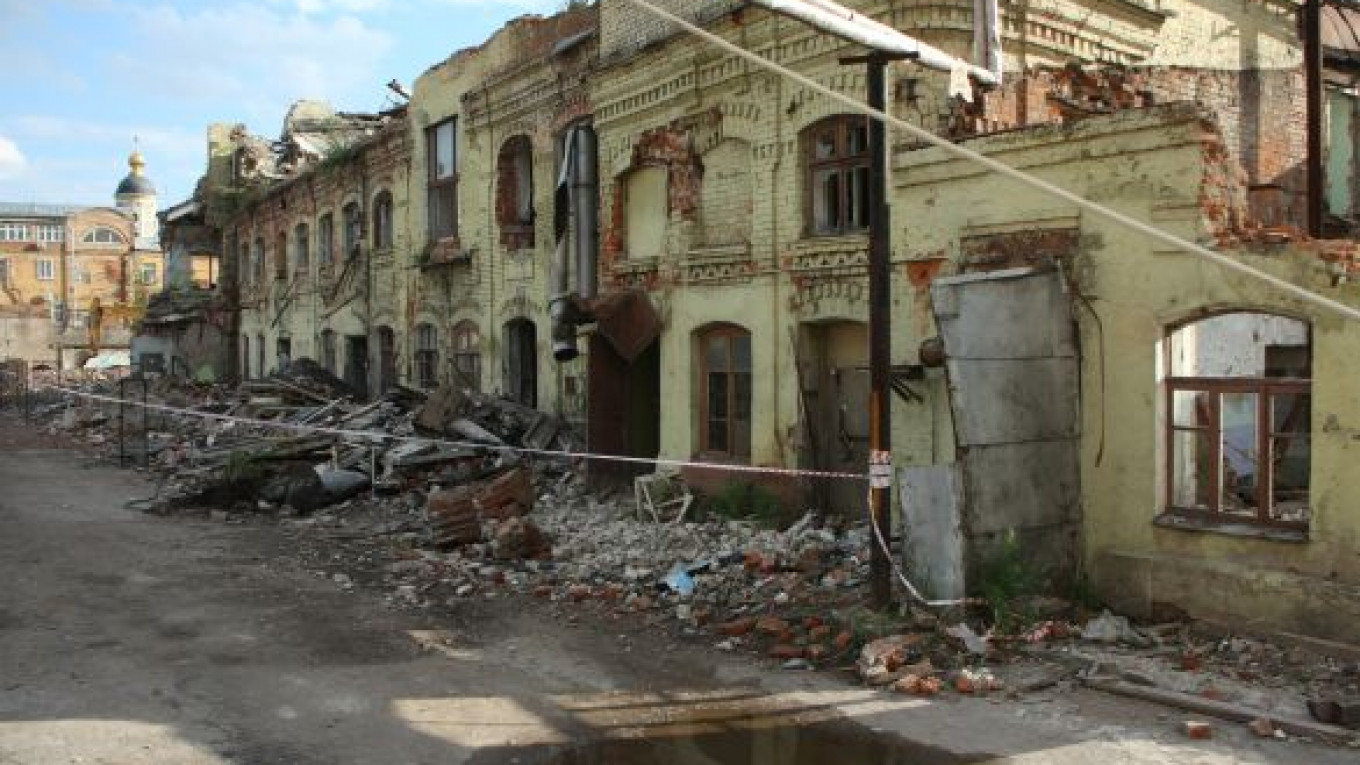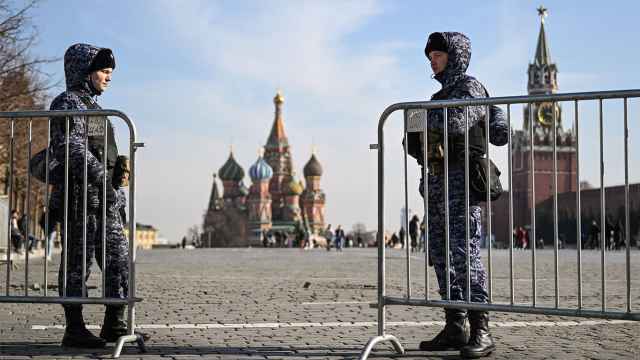Deputy Mayor Marat Khusnullin said he would not allow large-scale demolition of historical buildings and is open to dialogue as the new head of the commission overseeing Moscow's architectural heritage.
"I will not allow 1,000 buildings in the center of Moscow to be demolished, but I will not allow it to have 186 abandoned historical buildings either. Our task is to find a balance between culture and economic interests," Khusnullin said, responding to a question from The Moscow Times during a dinner with reporters Wednesday.
Khusnullin, 45, who assumed the post in the commission previously held by Yury Luzhkov's protege Vladimir Resin, said he would be open to dialogue with preservationists, who have called the body the "commission on destruction."
Khusnullin will oversee the city construction sector. He said the city's goal is to develop tourism, and visitors to the city will be attracted to Moscow's historical districts.
"Today the [historical] center is capital for the city to attract money with. There are investors who want to live and work in the center, and we have to create facilities for them," Khusnullin said. He added that buildings in the city's historical center will be renovated over a three-year period and protected by the state.
But while expressing hope that Khusnullin will take a more careful approach toward historical buildings, Konstantin Mikhailov, the leading activist for the public preservationist group Arkhnadzor, said about 12 historical buildings have been demolished during Khusnullin's tenure.
He cited the demolition of a historical mosque built in 1904 as an example of the destruction. But a source in the city government said Luzhkov's administration reversed its decision to include the mosque on the list of historical buildings that receive state protection.
Speaking about federal government plans to build a Greater Moscow, Khusnullin said the city will consider Chinese and Malaysian experience as it lays plans for Moscow's expansion, but it has no plans yet to move government buildings from the center.
"There are no plans yet to relocate the city government. Anyone who said they have those plans is not telling the truth," Khusnullin said, adding that it would take six to nine months to develop the plan for Greater Moscow after the tender for the urban planning is announced in November.
In June, President Dmitry Medvedev announced plans to build a Greater Moscow, which will incorporate 160,000 hectares of the area southwest of the city. The plan also includes relocating federal government buildings and moving offices.
Khusnullin, who just returned from China and Kuala Lumpur, also said Chinese experience in building satellite towns and Malaysian experience in relocating the capital will be studied to implement some similar strategies in Moscow.
Khusnullin said the city wants to avoid mistakes made by urban planners in those cities before announcing the competition to draft a plan for Moscow's expansion in November.
The deputy minister said one of the biggest mistakes in Moscow's city planning in the past was that local authorities did not coordinate their urban planning with the government of the Moscow region.
"We will create a unified plan for expansion, if the Moscow region will join in, it is welcome to," Khusnullin said.
He said the city intends to develop public transportation and build 15 new metro stations by 2020. "We have no other choice," Khusnullin said.
Khusnullin said companies like Otis, Hyundai and Mitsubishi have already expressed interest in building escalators for the city metro: "I don't care who does it, but I want the job to be done," said Khusnullin, who added that the city would allocate 15 billion rubles ($460 million) for the project over five years.
Khusnullin, who was responsible for the construction of the country's only new oil refinery in 20 years, built in Tatarstan, is noteworthy for his thoroughness. He said it was hard then for him to find qualified professionals. "I gathered them literally by making the telephone calls myself. It was hard to find 3,000 oil refinery construction workers in the whole country," he said.
A Message from The Moscow Times:
Dear readers,
We are facing unprecedented challenges. Russia's Prosecutor General's Office has designated The Moscow Times as an "undesirable" organization, criminalizing our work and putting our staff at risk of prosecution. This follows our earlier unjust labeling as a "foreign agent."
These actions are direct attempts to silence independent journalism in Russia. The authorities claim our work "discredits the decisions of the Russian leadership." We see things differently: we strive to provide accurate, unbiased reporting on Russia.
We, the journalists of The Moscow Times, refuse to be silenced. But to continue our work, we need your help.
Your support, no matter how small, makes a world of difference. If you can, please support us monthly starting from just $2. It's quick to set up, and every contribution makes a significant impact.
By supporting The Moscow Times, you're defending open, independent journalism in the face of repression. Thank you for standing with us.
Remind me later.






